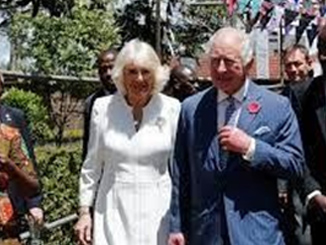

by Abaho Gift Conrad
Duniya Journal Africa Correspondent
During the recent visit of Britain’s king Charles III and Queen Camilla to Kenya, President Ruto hinted on how traditional leaders are seen as important cultural figures who can contribute to reconciliation efforts, but the broader responsibility for negotiating and implementing reparations lies with governments and international bodies.
In the wake of the historic demand for colonial reparations, the international community has turned its attention to the perspectives of African leaders regarding the responsibilities of traditional monarchs. The call for reparations, championed by activists and scholars alike, has sparked a nuanced debate about the role of African kings in addressing historical injustices.
Nigeria’s President, Muhammadu Buhari, emphasized the need for a comprehensive approach to reparations, stating, “While traditional leaders hold cultural significance, the responsibility for colonial reparations lies with governments and international institutions. We must work collectively to rectify the legacies of the past.”
Echoing this sentiment, President Paul Kagame of Rwanda highlighted the importance of addressing systemic issues. “Reparations should address the broader impact of colonization, focusing on socio-economic development and empowerment of affected communities. Traditional leaders can play a role in reconciliation, but the primary responsibility lies with national governments.”
President Cyril Ramaphosa of South Africa, a country with a complex history of colonialism and apartheid, emphasized the need for unity in addressing historical grievances. “Reparations are a collective responsibility. While traditional leaders contribute to cultural preservation, the broader process requires collaboration between governments, civil society, and the international community.”
Ghana, which recently marked the ‘Year of Return’ to commemorate the 400th anniversary of the transatlantic slave trade, has been a vocal advocate for reparations. President Nana Akufo-Addo asserted, “Traditional leaders can serve as advocates for reparations, amplifying the call for justice. However, the implementation and negotiation of reparations fall within the purview of governments and international organizations.”
Despite the diverse perspectives, there is a consensus among African leaders that addressing the impact of colonialism requires a multi-faceted approach.
As discussions surrounding colonial reparations continue to evolve, the nuanced stances of African leaders underscore the complexity of this issue. The path forward involves collaborative efforts to redress historical wrongs while navigating the intricate dynamics between traditional institutions and modern governance structures.

Leave a Reply